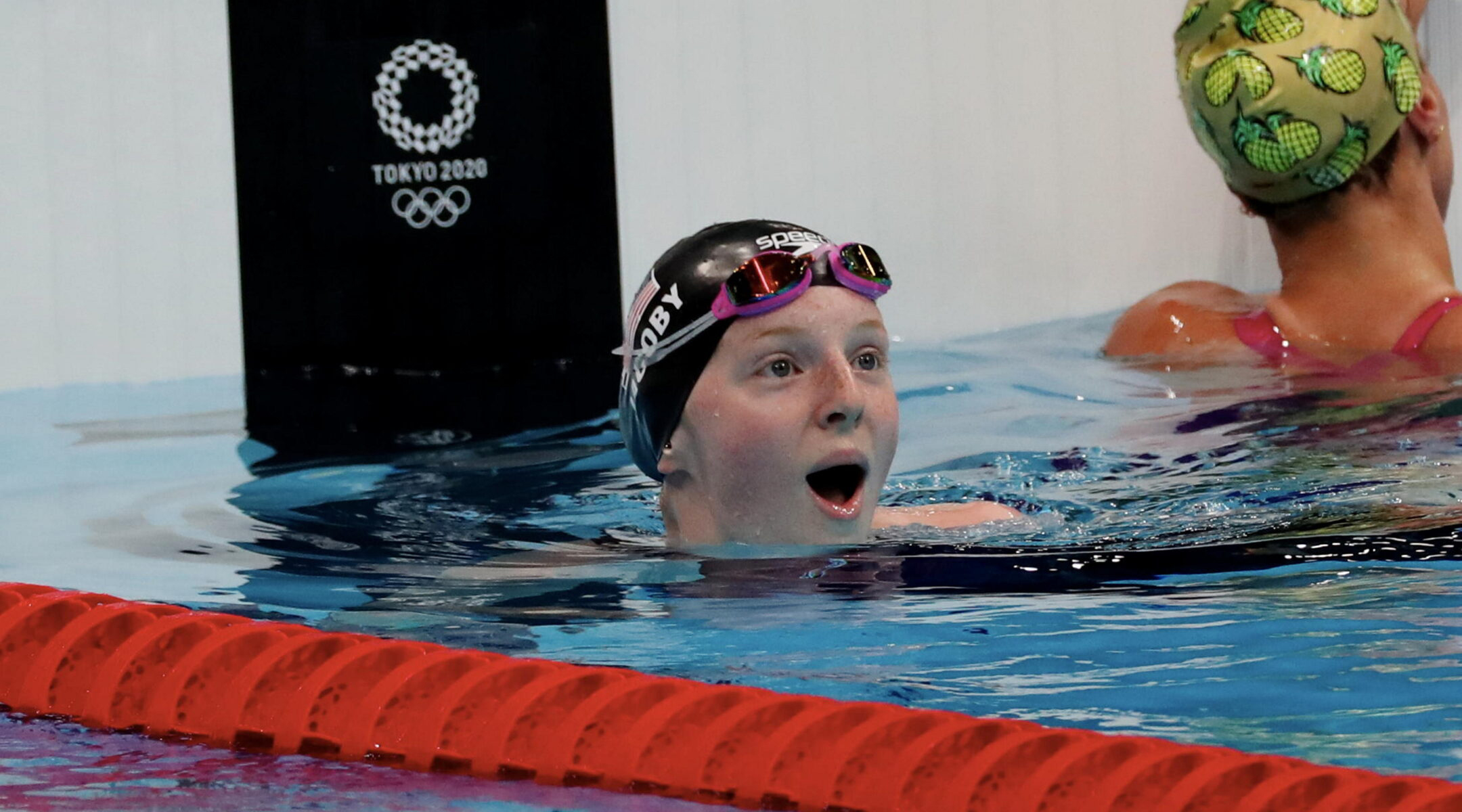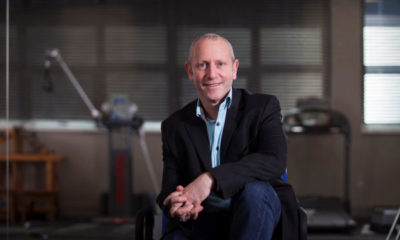
Sport

Olympic news in brief
(JTA) Is gold-medal swimmer Lydia Jacoby Jewish?
Lydia Jacoby, the 17-year-old swimmer from Seward, Alaska, surprised many when she came from behind to win the 100m breaststroke at the Tokyo Olympics on Monday, 26 July. Even Jacoby herself couldn’t believe it: her jaw dropped when she saw her time of 1 minute, 4 seconds.
Jacoby’s underdog status as the first-ever Olympic swimmer from Alaska, which has just one Olympic-sized pool, meant that Jewish viewers may have wondered for the first time: Is Lydia Jacoby Jewish?
Jacoby, also spelled Jacobi, is a surname of Ashkenazi Jewish or German origin. Ancestry.com lists the name as “Jewish, English, and German,” a variant of Jacobi, and according to a baby names site, “Jacoby is most likely the transferred use of a patronymic Jewish surname derived from the Hebrew personal name Yaakov which was eventually Latinised to Jacob.”
Some of the notable Jacobys in history were Jewish, including one who fled the Nazis in Germany to become an influential Israeli composer, but many others weren’t. The swimming phenom doesn’t appear to be Jewish.
Her parents, Richard and Leslie, are both boat captains and self-described “boat people”. Leslie’s parents, Jerry Hines and Janet Hines (nee Miles), were active in St John United Methodist Church in Anchorage, according to their obituaries. While names cannot prove who is Jewish, public records show that Richard’s father is also named Richard, and he has a brother named Christopher, both unlikely for Jewish men.
Jacoby’s home town of Seward has a population of about 2 773 people. The majority of the state’s Jews live in Anchorage.
Lilia Akhaimova vaults Russia to top spot
Lilia Akhaimova, a Russian Jewish gymnast competing in her first Olympics, had the lowest all-around score on her team during the qualifying round for the finals, in part because of a balance beam fall.
But in the finals itself, she shone on the vault, her specialty, earning the top score among the 24 competitors and helping to propel the Russian Olympic Committee, aka Team Russia, to the gold medal.
Russia’s gold was made possible by a stunning turn of events in the women’s team gymnastics competition – the withdrawal of United States superstar Simone Biles due to unspecified medical issues. Russia scored 169.528, 3.432 points ahead of the Americans, winning the country’s first women gymnastics gold since the 1992 Olympics.
A Vladivostok native, Akhaimova is a two-time World Championships silver medallist and 2018 European champion with the Russian women’s team. She was an alternate at the 2016 Games in Rio de Janeiro.
Akhaimova will compete in the women’s individual vault competition on 1 August.
Kayaker Jessica Fox wins bronze – again
Jessica Fox, considered by many to be the greatest paddler of all time, was heavily favoured to win gold in the Tokyo Olympics women’s slalom K-1 competition.
Instead, the Jewish paddler took home a bronze medal on Tuesday, 27 July, as she did at the 2016 Rio Games.
Ahead of the final, Fox was the top qualifier with the fastest time in the semi-finals. Yet, her final race “didn’t go to plan”, Fox said. “I had to fight all the way down.”
Fox, 27, burst into tears as her mom and coach, Myriam Jerusalmi, also an Olympic medallist in kayaking, comforted her after the race.
Fox told Australian media, “I’m disappointed that I made the mistakes I did that cost me the gold medal, but also happy to be on the podium. It’s our sport. I’d obviously come dreaming of that gold medal, so when I hugged mum, that’s when the floodgates opened.”








